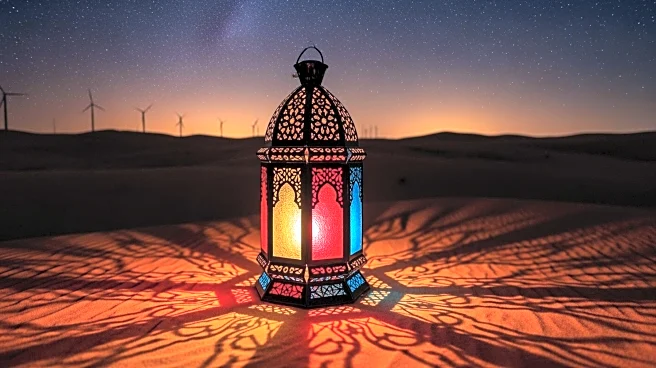What's Happening?
The Moroccan government has approved a new draft decree to regulate the production and operation of self-generated electricity. This decision was made during a Cabinet meeting in Rabat, led by Prime Minister
Aziz Akhannouch. The decree, presented by Minister of Energy Transition and Sustainable Development Leila Benali, implements Articles 3 to 6 of Law No. 82.21, which governs electricity self-production. It establishes three regulatory frameworks: a declaration regime, a connection approval regime, and an authorization regime. The framework provides guidelines for building and operating self-production electricity facilities, detailing the authorization process for installations linked to self-consumption systems, whether connected to the national grid or not. Additionally, the Cabinet postponed the review of another draft decree concerning the adjustment of excess production capacity limits for self-generated electricity.
Why It's Important?
This development is significant as it marks a step forward in Morocco's energy transition efforts, aiming to increase the share of renewable energy in its energy mix. By regulating self-produced electricity, the government is encouraging more sustainable energy practices and reducing reliance on traditional energy sources. This move could potentially lead to increased investments in renewable energy infrastructure and technology, fostering economic growth and job creation in the energy sector. It also aligns with global efforts to combat climate change by promoting cleaner energy solutions. Stakeholders in the energy industry, including businesses and consumers, stand to benefit from clearer regulations and potentially lower energy costs.
What's Next?
The Moroccan government is expected to continue refining its energy policies, with further discussions anticipated on the draft decree concerning excess production capacity limits. This ongoing regulatory development may prompt reactions from energy companies and investors, who will be closely monitoring the implications for their operations and investment strategies. Additionally, the government’s commitment to sustainable energy could inspire similar initiatives in other countries, particularly in the region, as they seek to balance energy needs with environmental responsibilities.
Beyond the Headlines
The approval of this framework may have broader implications for Morocco's international standing as a leader in renewable energy adoption. It could enhance the country's attractiveness to foreign investors looking for stable and progressive energy markets. Moreover, the focus on self-produced electricity might encourage innovation in energy technologies and solutions, potentially positioning Morocco as a hub for renewable energy research and development.








